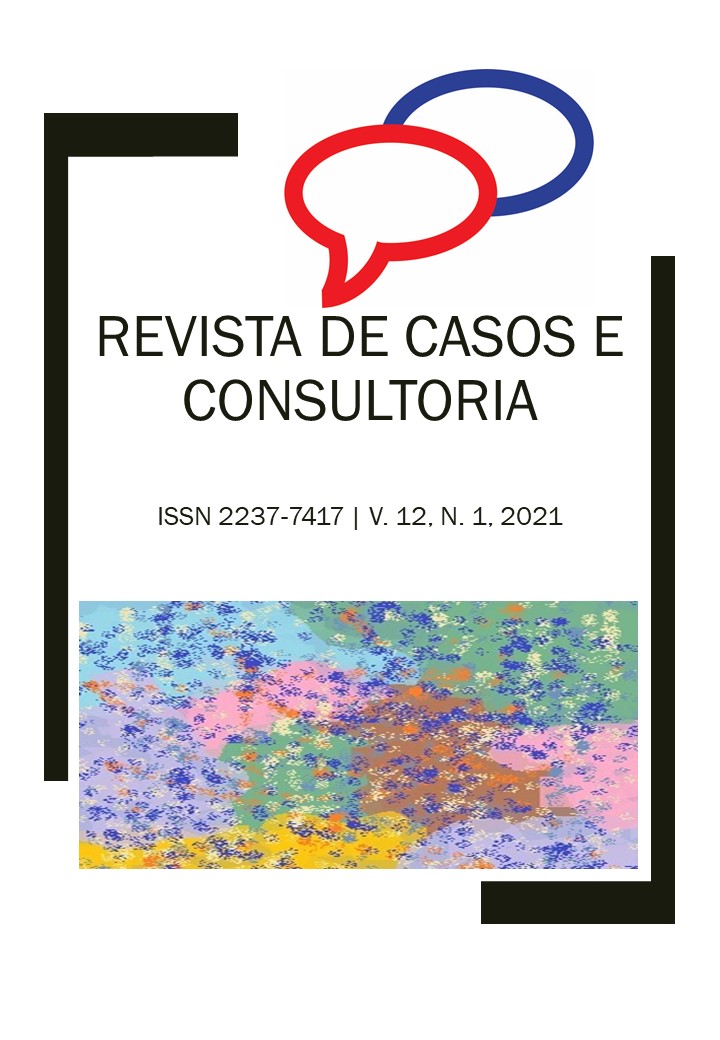Imunopatologia do SARS-CoV-2 e análise dos imunizantes no território brasileiro
Palavras-chave:
COVID-19; SARS-CoV-2; Farmacêuticos; Vacinas.Resumo
O SARS-COV-2 pertence à família Coronaviridae e é responsável pela doença denominada de COVID-19, considerada um problema de saúde pública global. O presente estudo teve como objetivo descrever a imunopatologia da COVID-19 e as vacinas disponíveis atualmente. Trata-se de um estudo de análise descritiva e com abordagem qualitativa, sobre a imunopatologia da COVID-19 e as vacinas disponíveis atualmente. No Brasil, a Agência Nacional de Vigilância Sanitária aprovou em caráter emergencial no dia 17 de janeiro de 2021, os imunizantes CoronaVac do laboratório Chinês SINOVAC em parceria com o Instituto Butantan, localizado no estado de São Paulo, e a AstraZeneca da Universidade de Oxford na Inglaterra em parceria com a Fiocruz no Rio de Janeiro. Ressalta-se que ainda possuem outras vacinas desenvolvidas que aguardam aprovação emergencial pela ANVISA. Entretanto, no contexto atual tornam-se viáveis ao clima brasileiro as que possuem armazenamentos de 2 à 8ºC, comumente para os imunizantes de outras doenças sem a necessidade de ultracongeladores. Conclui-se que as vacinas são garantias de eficácia imunológica para a proteção da população contra a doença.
Downloads
Referências
APS, L. R. M. M. et al. Eventos adversos de vacinas e as consequências da não vacinação: uma análise crítica. Rev. Saúde. Pública, v. 52, n. 40, p. 1-13, 2018.
BADEN, L. R. et al. Efficacy and safety of the mRNA-1273 SARV-CoV-2 vaccine. The New England Journal of Medicine, v. 384, n. 5, p. 403-416, 2021.
BRASIL. Saúde confirma caso de reinfecção por nova cepa da Covid-19. 2021. Acesso em: 17 de janeiro de 2021. Disponível em: <https://www.gov.br/saude/pt-br/assuntos/noticias/saude-confirma-caso-de-reinfeccao-por-nova-cepa-da-covid-19>
CAPONI, S. Covid-19 no Brasil: entre o negacionismo e a razão neoliberal. Estudos avançados, v. 34, n. 99, p. 209-223, 2020.
CENTERS FOR DISEASE CONTROL AND PREVENTION (CDC). US COVID-19 Cases Caused by Variants. 2021. Acesso em: 17 de janeiro de 2021. Disponível em: <https://www.cdc.gov/coronavirus/2019-ncov/transmission/variant-cases.html>
CHEN, Y. et al. Aging in COVID-19: Vulnerability, immunity and intervention. Ageing Research Reviews, v. 65, p. 1-11, 2021.
DEJNIRATTISAI, W; ZHOU, D; SUPASA, P; LIU, C; MENTZER, A.J; GINN, H. M. Antibody evasion by the Brazilian P.1 strain of SARS -CoV-2. bioRxiv. 2021. Disponível em: <https://www.biorxiv.org/content/10.1101/2021.03.12.435194v1.full.pdf>
EUSER, S. et al. SARS-CoV-2 viral load distribution in different patient populations and age groups reveals that viral loads increase with age. medRxiv, p. 1-20, 2021.
FERRARI, F. COVID-19: Dados Atualizados e sua Relação Com o Sistema Cardiovascular. Arq. Bras. Cardiol., v. 114, n. 5, p.823-826, 2020.
GAEBLER, C. et al. Evolution of antibody immunity to SARS-CoV-2. Nature, p. 1-33, 2021.
INSTITUTO BUTANTAN. CoronaVac. 2020. Disponível em: <https://vacinacovid.butantan.gov.br/bulas>
KNOLL, M. D.; WONODI, C. Oxford-AstraZeneca COVID-19-vaccine efficacy. The Lancet. v. 397, p. 72-74, 2021.
LOAYZA-ALARICO, M. J.; CRUZ-VARGAS, J. A. D. L. Efecto de las variantes de SARS-CoV-2 en la transmisión de COVID-19 en el Perú. Rev. Fac. Med. Hum., v. 21, n. 1, p. 10-11, 2021.
NASCIMENTO, C. B. C. et al. SARS-CoV2 e Covid-19: aspectos fisiopatológicos e imunológicos, estratégias de diagnóstico e desenvolvimento de vacinas. Revista
Interdisciplinar de Saúde e Educação Ribeirão Preto, v. 1, n. 2, p. 122-158, 2020.
ORGANIZAÇÃO MUNDIAL DE SAÚDE (OMS). 2020. Disponível em: <https://www.who.int/eportuguese/countries/bra/pt/>
Organização Pan-Americana da Saúde (OPAS). Atualização epidemiológica: Ocorrência de variantes de SARS-CoV-2 nas Américas. 2021. Disponível em: <https://www.paho.org/pt/file/80853/download?token=FPTfm0D>
PACES, J. et al. COVID-19 and the Immune System. Physiol. Res., v. 69, p. 379-388, 2020.
PLATTO, S.; XUE, T.; CARAFOLI, E. COVID19: an announced pandemic. Cell Death Dis, v. 11, n. 799, p. 1-13, 2020.
POLACK, F. P. et al. Safety and Efficacy of the BNT162b2 mRNA Covid-19 Vaccine. The New England Journal of Medicine, v. 383, n. 27, p. 2603-2615, 2020.
SANTOS, W. G. Impact of virus genetic variability and host immunity for the success of COVID-19 vaccines. Biomedicine & Pharmacoterapy, v. 136, p. 1-15, 2021.
SILVEIRA, F. S. et al. Peculiaridades da infecção por Sars-CoV-2 em pediatria. Braz. J. of Develop., v.6, n. 12, p.101575-10158, 2020.
SINOVAC. Summary of Clinical Trial Data of Sinovac’s COVID-19 Vaccine. 2021. Disponível em: <http://www.sinovac.com/?optionid=754&auto_id=927>
TAY, M. Z. et al. The trinity of COVID-19: immunity, inflammation and interventioN. Nature Reviews Immunology, v. 20, p. 363-374, 2020.
VELAVAN, T. P.; MEYER, C. G. The COVID?19 epidemic. Trop Med Int Health, v. 25, n. 3, p. 278-280, 2020.
WIERSINGA, W. J. et al. Pathophysiology, Transmission, Diagnosis, and Treatment of Coronavirus Disease 2019 (COVID-19). JAMA, v. 324, n. 8, p. 782-793, 2020.
ZHENG, S. et al. Recommendations and guidance for providing pharmaceutical care services during COVID-19 pandemic: A China perspective. Res Social Adm Pharm., v. 17, n. 1, p. 1819-1824, 2021.

 Português (Brasil)
Português (Brasil) English
English Español (España)
Español (España)